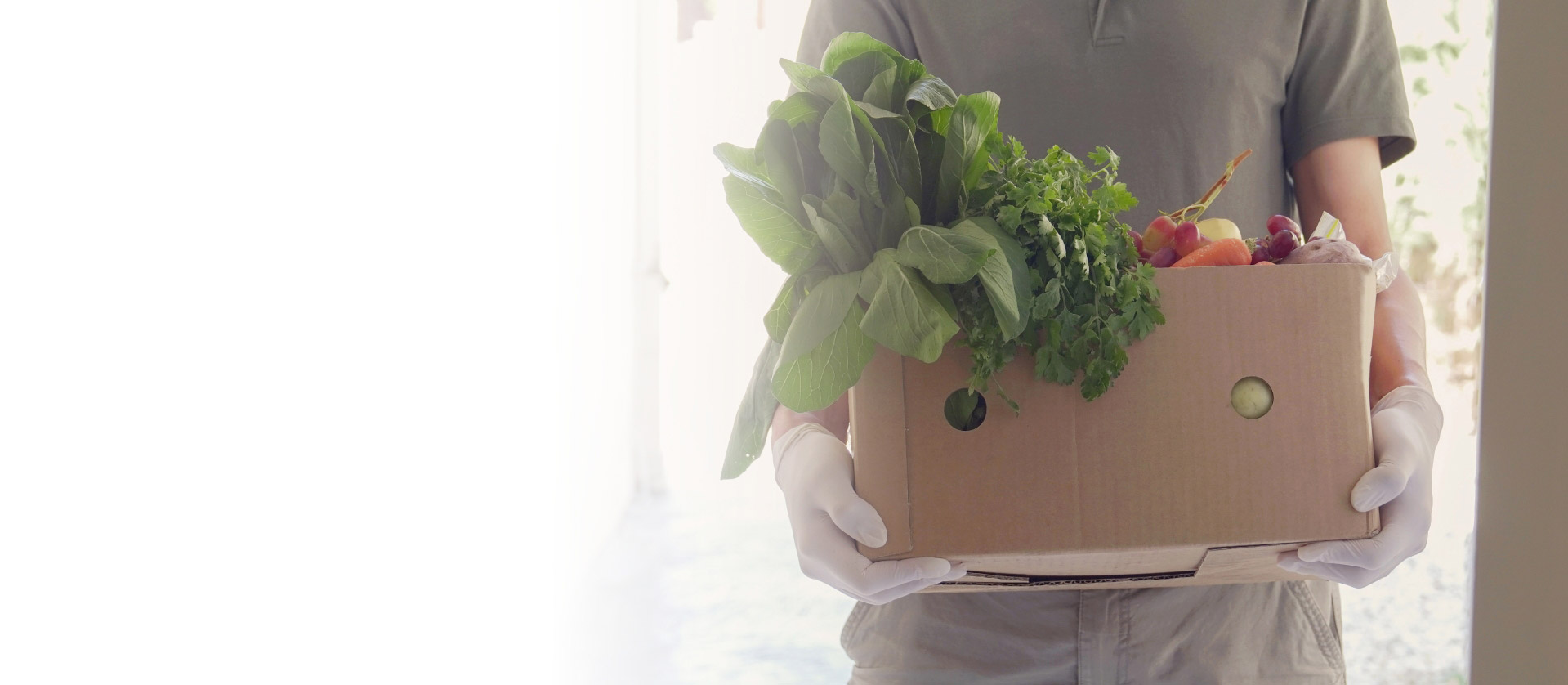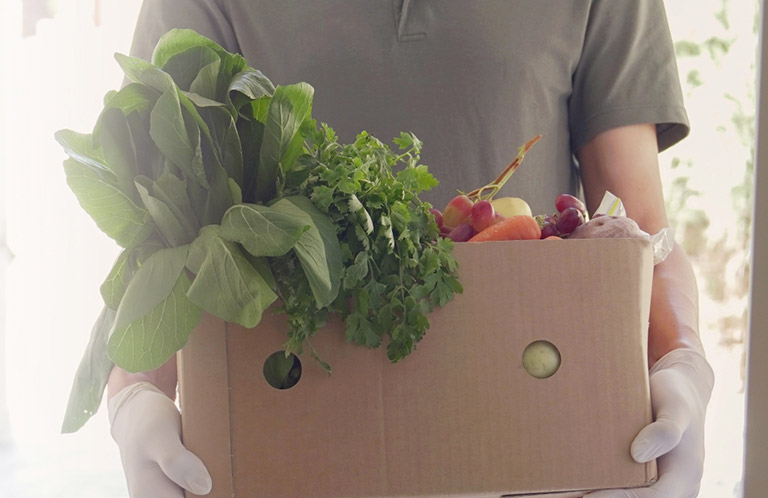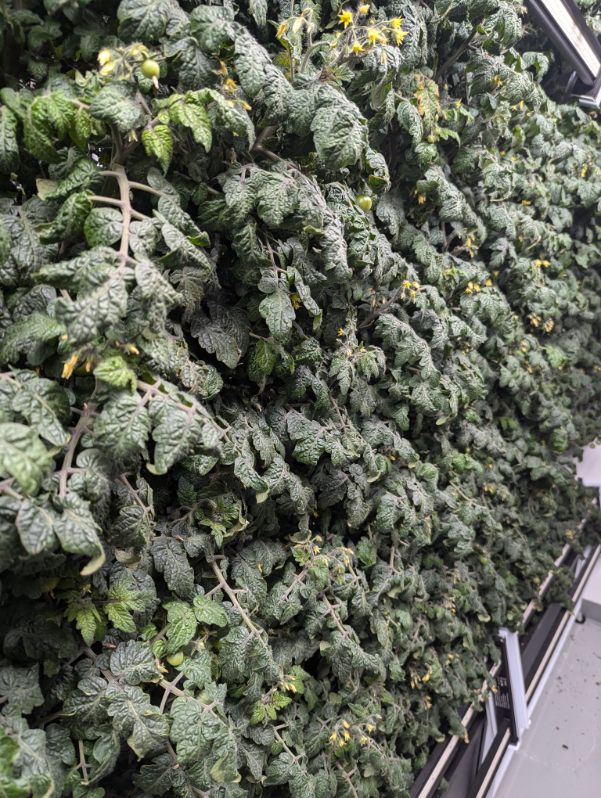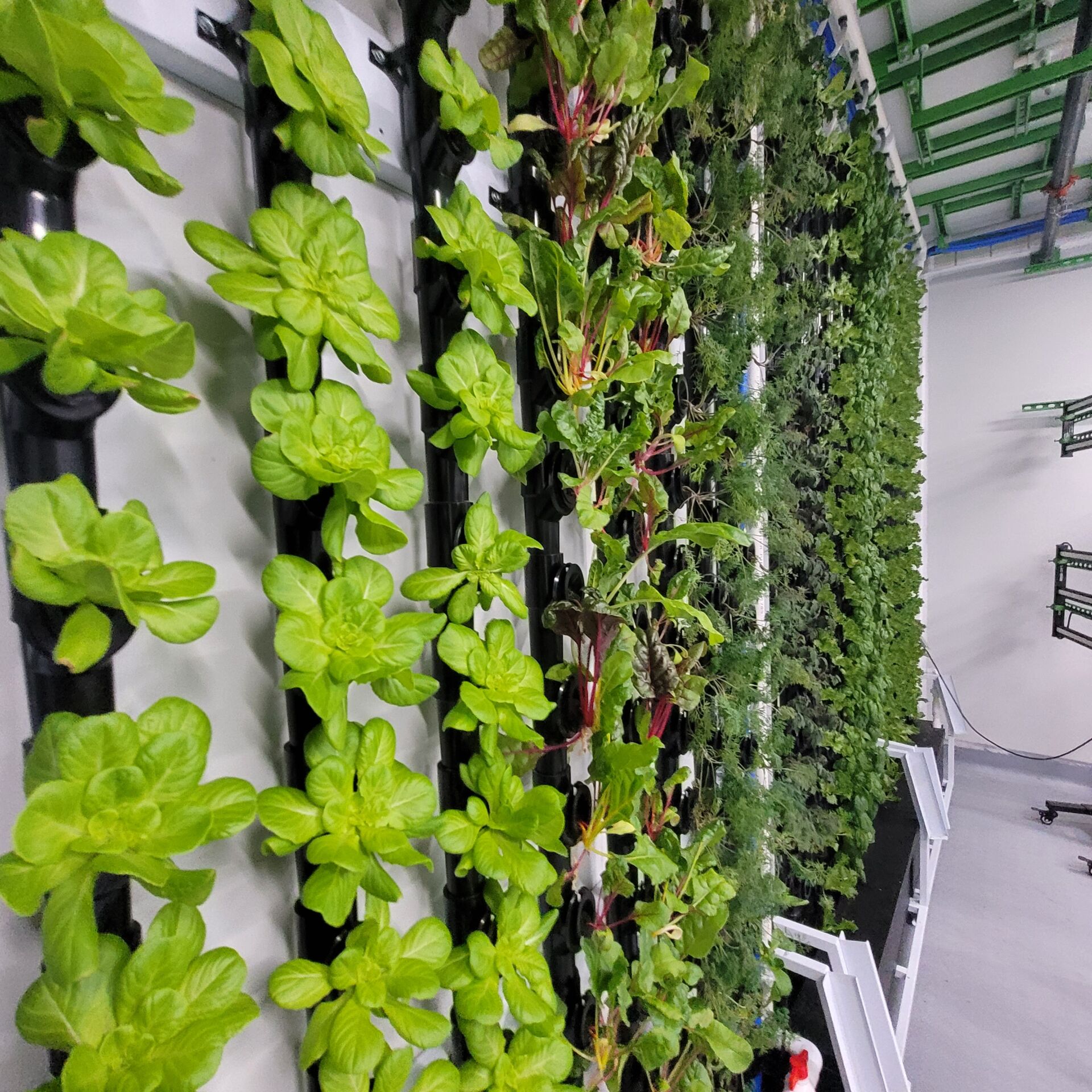Indoor farms ensure fresh, affordable, and delicious produce.


Grow Fresh Food Where It Is Needed Most
At NuLeaf Farms, we help food banks and hunger relief organizations produce their own fresh, healthy food — right on-site. Our modular hydroponic farms are easy to operate, low-maintenance, and designed to grow reliable volumes of nutrient-dense produce year-round. Whether you’re feeding families, stocking your hamper program, or building skills in your community, we design systems that deliver impact.
Indoor gardens enable food banks to grow fresh produce throughout the year, regardless of external weather conditions. This consistent supply ensures a steady source of nutritious food, reducing dependence on seasonal availability.

By incorporating fresh produce, indoor gardens provide food banks with the means to offer healthier and more balanced meals. This helps combat food insecurity-related health issues by increasing access to nutrient-rich foods.
Indoor gardens utilize controlled environments, such as hydroponics or vertical farming systems, which require less land, water, and fertilizers compared to traditional agriculture. This optimizes resource efficiency and reduces costs.

Indoor gardens provide opportunities for community involvement and volunteer participation. People can contribute to the garden’s maintenance, fostering a sense of ownership and connection to the food bank’s mission.

Hydroponic Gardens
Indoor farming technology, including modular systems that can scale with food bank needs, has revolutionized crop cultivation. A standout feature of this technology is its remarkable ease of use, catering to both experienced growers and beginners alike. These advanced systems are designed to simplify the indoor farming process, making it accessible to a wide range of users.
Many systems come pre-assembled or require minimal installation, allowing users to quickly start their farming endeavours. Moreover, the modular nature of these systems allows food banks to scale their indoor farming operations according to their specific needs. They can easily expand the size or capacity of the gardens as their demand for fresh produce increases, ensuring a flexible and adaptable solution to address hunger and nutrition challenges.

Ensuring Success
Our farms are compact, modular, and designed to maximize output with minimal input. We provide everything you need — lighting, irrigation, climate control, nutrient systems, and automation — in one complete package. Systems are available as:
– Vertical wall units for high-density growing in community kitchens or shared spaces
– Modular grow rooms for warehouse or retrofit projects
– Mobile container farms for outdoor or transitional installations
Educational systems with STEM programming for school-linked food security projects
Automation & Remote Monitoring
Powered by our Leaf & Root platform, every system comes with built-in automation and remote access. This means fewer manual tasks, consistent crop quality, and peace of mind — even when staff or volunteers change.


From Fresh Food to & Community Impact
NuLeaf’s food bank farms do more than just grow produce — they create opportunities. Many clients use them to support:
Nutrition programs in schools, shelters, or meal services
Community education and skills development
Cultural food initiatives and Indigenous food sovereignty projects
Workplace training in hydroponics, culinary skills, and sustainability
Partnership-driven programs with local governments, grocery chains, and funders

Get Started Today
We understand the unique needs of food banks and can offer valuable guidance and support to help you establish your indoor garden. Whether you’re starting from scratch or have prior experience, our team is here to provide the necessary assistance. We offer free consultations where we can discuss your goals, address any concerns or questions you may have, and recommend the most suitable hydroponic farming system for your food bank.